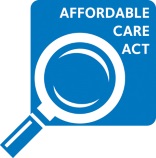
“I Shall Vote” will donate and campaign for all democratic party presidential candidates until such time as one has become a front runner. Meanwhile, we are Social Democrats; we will promote candidates with similar agenda more.
The electability of the Democratic candidate considered against the defeat ability of Mr. Trump is the top priority. We believe it is essential, for this to happen, to realize and promote the voter’s desires as determined by data collection and statistical analyses.
All statistical models and polls point to how significant the ACA is among all voters. Whereas many do not agree with “Medicare for All.”
We do, nevertheless, think Medicare for All is a risky position when one looks at the voter’s statistical desires: 70% percent of voters would like to keep the employment insurance they have, not to be touched, and we agree with them. Most significantly how do we pay for it? That has already become an unanswered question. The roughly $30 trillion price tag over ten years of single-payer health insurance, sometimes referred to as “Medicare for all,” has been one of the leading criticisms of the proposal. Moreover, voters statistically do not wish to for “Medicare-for-All”. Most voters are hoping candidates would promote Medicare as an additional public plan option through the ACA marketplace.
We should focus on improving ACA for all. ACA like all systems requires constant improvement. It is essential to realize that even with its challenges, itis now the law of the land. Hence with all contests and, encounters, it makes no sense to reinvent the wheel.
Jan Schakowsky of Illinois [and] Rosa DeLauro of Connecticut, have introduced a proposal called ‘Medicare for America’ that ensures that if you have employer-based insurance and if you like it, you keep it. Your doctors, your network, what works for you right now; If you don’t have insurance or you don’t like the coverage you already have, you can enroll in Medicare.”
A key insight from a national poll released by the nonpartisan Kaiser Family Foundation.
The poll found that Americans initially support “Medicare-for-all,” 56 percent to 42 percent.
However, those numbers shifted dramatically when people were asked about the potential impact, pro
But if they were told that a government-run system could lead to delays in getting care or higher taxes, support plunged to 26 percent and 37 percent, respectively. Support fell to 32 percent if it would threaten the current Medicare program.
“The issue that will really be fundamental would be the tax issue,” said Robert Blandon, a professor at the Harvard T.H. Chan School of Public Health who reviewed the poll. He pointed out that state single-payer efforts in Vermont and Colorado failed because of concerns about the tax increases needed to put them in place.
In Other pools, there is great indication that Majority of working class believe the offering of insurance via their employment benefit should not be touched since it is an excellent established system and Medicare should be added to ACA as an option plan.
We believe “Coverage for all” should be the main objective and should be reached by ACA while Medicare and privet insurance option should be included. The cost of Medicare as an option should be relevant to the family income such that very poor family or disable individuals should receive coverage like medicate without payment.
ACA has major flowing issues that need to be addressed.
1- Health care cost
For the past 40 years real, per capita health care spending has been growing at twice the rate of growth of real, per capita income. That’s not only true in this country; it is about the average for the whole developed world.
You don’t need to be an accountant or a mathematician to know that if something you are buying is growing faster than your income, it will crowd out everything else you are consuming. Health care spending will take more and more of the family budget; it will take an ever-larger share of workers’ gross pay. The Affordable Care Act (ACA) did not create this problem. But it limits our ability to manage it by restricting our ability to choose a smaller package of benefits, more cost sharing, etc. In short, the health reform law is trying to force us to remain on an unsustainable path. This Needs to be fixed.
2- President Obama promised that, if you like your plan, you can keep it. But health insurance companies canceled plans for 1 million people. That’s because they didn’t comply with the ACA’s 10 essential health benefits. That was their decision, not Obama’s. But many people lost insurance as a result.
3- Three million to 5 million people lost their employment-based health insurance. Many businesses found it more cost-effective to pay the penalty and let their employees purchase insurance plans on the exchanges. Other small businesses find they can get better plans through the state-run exchanges.
We propose once Medicare is offered as an option, with scaling monthly plan payment based on family income( As is now), everyone should be covered without exception. By charging the wealthy families extra, we should be able to make Medicare free or extremely affordable for a very low-income family.
What was mentioned are some of issues ACA has. ACA like all systems requires constant improvement. At many existing issues, and there will be more future issues.
